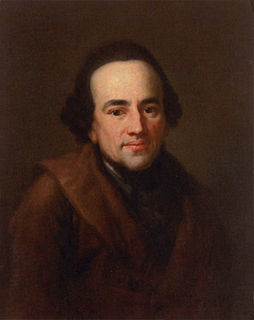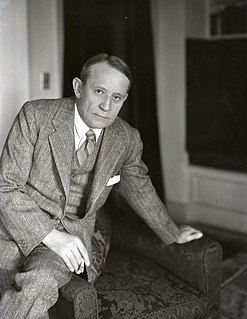A Quote by Walter Jon Williams
When state and religion are one, religion becomes a means for the powerful to remain in power.
Related Quotes
If a state political organization is founded in part upon a state religion with a dogma based on one or a few 'official' prophets, then shamanism, where every shaman is her or his own prophet, is dangerous to the state. [...] Shamanism, as I said, is not a religion. The spiritual experience usually becomes a religion after politics has entered into it.
The "establishment of religion" clause of the First Amendment means at least this: Neither a state nor the Federal Government can set up a church. Neither can pass laws which aid one religion, aid all religions, or prefer one religion over another. Neither can force nor influence a person to go to or to remain away from church against his will or force him to profess a belief or disbelief in any religion.
Art is not a substitute religion: it is a religion (in the true sense of the word: 'binding back', 'binding' to the unknowable, transcending reason, transcendent being). But the church is no longer adequate as a means of affording experience of the transcendental, and of making religion real - and so art has been transformed from a means into the sole provider of religion: which means religion itself.
The First Amendment...does not say that in every respect there shall be a separation of Church and State....Otherwise the state and religion would be aliens to each other - hostile, suspicious, and even unfriendly....The state may not establish a 'religion of secularism' in the sense of affirmatively opposing or showing hostility to religion, thus preferring those who believe in no religion over those who do believe.
How can you have the religion of the sovereign be the religion of the state if the sovereign belongs to many religions? And it's at that point, I think, historically, that you start to see people saying maybe the state should not associate itself with any religion. Maybe there shouldn't be any official religion.
Liberalism is really piecemeal socialism, and socialism always attacks three basic social institutions: religion, the family, and private property. Religion, because it offers a rival authority to the state; the family, because it means a rival loyalty to the state; and property, because it means material independence of the state.
If I were a dictator, religion and state would be separate. I swear by my religion. I will die for it. But it is my personal affair. The state has nothing to do with it. The state would look after your secular welfare, health, communications, foreign relations, currency and so on, but not your or my religion. That is everybody's personal concern!
The separation of church and state is necessary partly because if religion is good then the state shouldn't interfere with the religious vision or with the religious prophet. There must be a realm of truth beyond political competence, that's why there must be a separation of churches, but if religion is bad and a bad religion is one that gives an ultimate sanctity to some particular cause. Then religion mustn't interfere with the state - so one of the basic Democratic principles as we know it in America is the separation of church and state.
In our decrees, it is definitely proclaimed that religion is a question for the private individual; but whilst opportunists tended to see in these words the meaning that the state would adopt the policy of folded arms, the Marxian revolutionary recognizes the duty of the state to lead a most resolute struggle against religion by means of ideological influences on the proletarian masses.
The court decided, based on its reading of our precedents, that the effects test of Lemon is violated whenever government action creates an identification of the state with a religion, or with religion in general, ...or when the effect of the governmental action is to endorse one religion over another, or to endorse religion in general.
Religion should unite all hearts and cause wars and disputes to vanish from the face of the earth; it should give birth to spirituality, and bring light and life to every soul. If religion becomes a cause of dislike, hatred and division, it would be better to be without it... Any religion which is not a cause of love and unity is no religion.





































